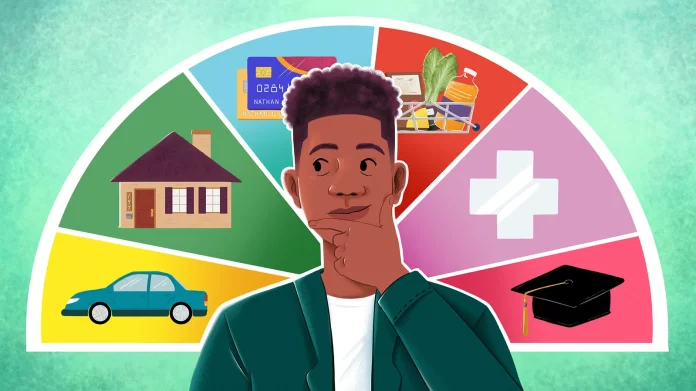University is expensive. Most students have limited income at this stage of their lives and, for many, it is their first time managing their own money. Budgeting is hard, but to help build a better relationship with money, here are a few tips and tricks to aid you on your money management journey.
The first step in creating a budget is understanding where your money is coming from, and where it’s going. Accountants call this an income statement. All the biggest businesses in the world have one, so why not you? It may sound intimidating, but it is actually very straightforward. All you need to do is take note of the money you have coming in, and the money you have going out.
Next, look at the sources of your income and expenses. Your income can include the jobs you work, any scholarships or grants, and family contributions to your tuition. As for your expenses, this generally includes the “Big Five” — rent, tuition, transportation, groceries, and utilities (like phone, internet, electricity, and health insurance). You should also leave room for miscellaneous spending, like the Iced Capp at Tim’s, your friend’s upcoming birthday, and other occasional treats.
To figure out your average monthly income, analyze the past two months of your earnings and expenses. Mobile banking apps can make this step a lot easier, as they often have budget calculators. By looking at your past expenses, you will have an idea of how much you are spending monthly, which can help you plan for the future.
If you want a clearer picture of your expenses, organize them into short-term and long-term purchases. Short-term expenses are your regular monthly expenses, and long-term expenses are investments like tuition fees or a car — expenses that you need to save up for over a longer period of time. With a budget, you will begin to understand how much of your income you are spending and how much you might be able to save, which will help you set up a timeline for long-term saving.
Another tip is to not spend more than you have. While credit cards are beneficial, many people get the illusion that they have more money than they actually do. You shouldn’t spend more than you have, regardless of your credit limit. The biggest financial trap for a university student is overspending and then having to pay back the debt. Keep your lifestyle below your income. And if your friends have bad money habits, don’t lend to them. Lending to someone who has a bad relationship with money is not helping them (or you) in any way.
Another useful tip as a fellow university student is to wait for the first day of classes before buying textbooks. Semester reading can cost a pretty penny, so don’t buy them solely because they are listed on the course outline. Wait for the first day of classes, when the professors will inform you if buying the textbook is necessary for the class. And if they are required, try finding textbooks second hand, as they are a lot cheaper than when bought new. However, if the book has been listed merely as helpful reading material, you might be able to avoid buying it altogether.
Cultivate a positive relationship with money by understanding your finances and their importance in your life. Meeting with a financial advisor can be a great way to do this. And most importantly, while being mindful with your money, don’t forget to enjoy life as you go about earning it. Your relationship with money is ever evolving; keep learning and growing with it as you go along.


